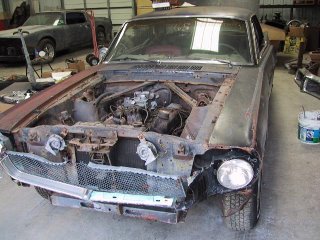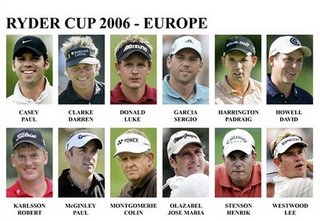
I'm showing my age... but one song I remember covering in a rock band I played with was The Clash's "Should I Stay or Should I Go."
Should I stay or should I go now?
Should I stay or should I go now?
If I go there will be trouble
And if I stay it will be double
So come on and let me know...
[Should I stay or should I go.]
It’s a question that United Methodist pastors will start to ask themselves in a few months: “It is time for me to move? Should I go?” More honestly, when word of retirements and “big moves” gets circulated, we pastors may ask ourselves, “Is this a good year for me to move?” Translation: is this good for my career, my family, and my wallet?
There’s a lot of “me” there. What does that say about those laity that we serve?
Church of the Servant United Methodist Church is the largest UM church in Oklahoma, with over 7,000 members. Their senior pastor, Norman Neaves, was appointed there in 1968 to start a new church. He is still the senior pastor there.
Church of the Resurrection United Methodist Church is the largest UM church in Kansas, with over 14,000 members. Their senior pastor, Adam Hamilton, was appointed there in 1990 to start a new church. He is still the senior pastor there.
Frazer Memorial UMC in Montgomery, Alabama, is the largest UMC in Alabama. John Ed Mathison was appointed there 34 years ago as the senior pastor. Frazer Memorial was not a new church start; it was founded in 1889, and relocated when interstate highways were constructed. Since Mathison was appointed there, the church grew from 400 members to 8,400 members. Mathison is still there.
I took enough statistics classes in college to be wary of correlations and causality. But it just makes sense that longer pastoral tenures usually bear more fruit. Consider the words of blogger Paul Lamey:
The things that the pastor is called to be and do take time…lots of time! The common joke is that, “pastors work one hour a week.” While this is no doubt true for many hirelings throughout the land, not so with the man who has been called by God and gives himself to the ministry with complete integrity. The average tenure of a pastor in the US is three years. That’s despicable and horrific when we consider what it takes to effectively minister to God’s flock in the way that He has prescribed. I’m not suggesting that a pastor fill his schedule with programs from the denomination office or with the latest fad from the “experts”. To the contrary, I’m suggesting he immerse himself with the specifics that God has called him to in Scripture (e.g., study, preach/teach, counsel, lead/administrate, visit, pray, practice, etc.). It takes time to do these things and it takes even more time to do them with excellence. This means that every week will be full and when he enters his third year of ministry he’s not looking for an escape but he’s just getting started. We see leaders with this basic commitment as far back as Ezra who “set his heart to study the law of the LORD and to practice it, and to teach His statutes and ordinances in Israel” (Ezra 7:10).
Lamey then found a quote from Calvin’s commentary on some texts from Hosea regarding call to ministry and how long it lasts:
“But when God employs our service for twenty or thirty years, we think it wearisome, especially when we have to contend with wicked men, and those who do not willingly undertake the yoke, but pertinaciously resist us; we then instantly desire to be set free, and wish to become like soldiers who have completed their time. When, therefore, we see that this Prophet persevered for so long a time, let him be to us an example of patience, so that we may not despond, though the Lord may not immediately free us from our burden.” (Calvin’s Commentaries, Vol. 13, “Hosea” pg.38).
So let’s see… the average pastoral tenure in the United States is 3 years. Is it just too much to consider staying somewhere for 20-30 years? Are we that impatient?
Sometimes we pastors often find ourselves asking the question, “Have I stayed here too long?” It may be that we need to instead ask, “Don’t I need to stay here a long time?”
Pax,
Sky+
Note: I have since found out that Norman Neaves retired last year.
















